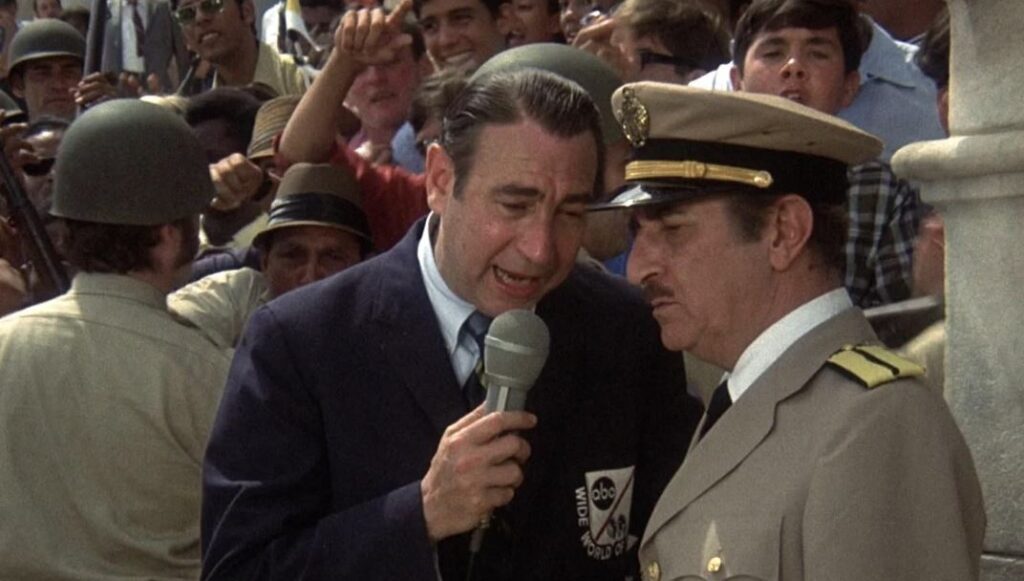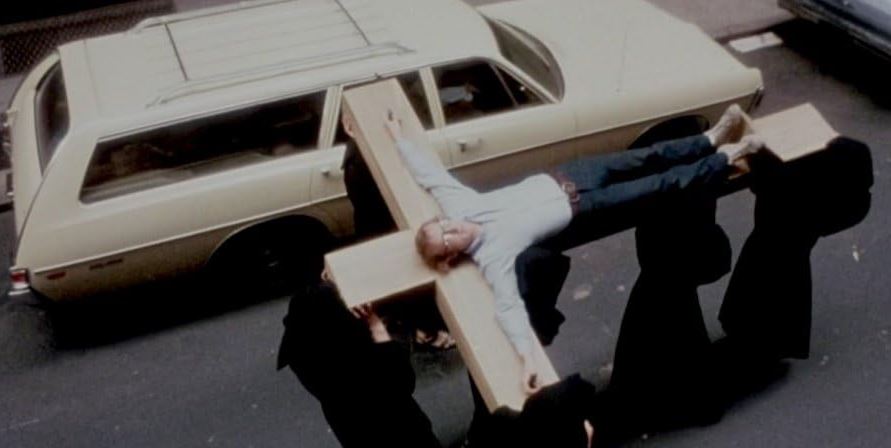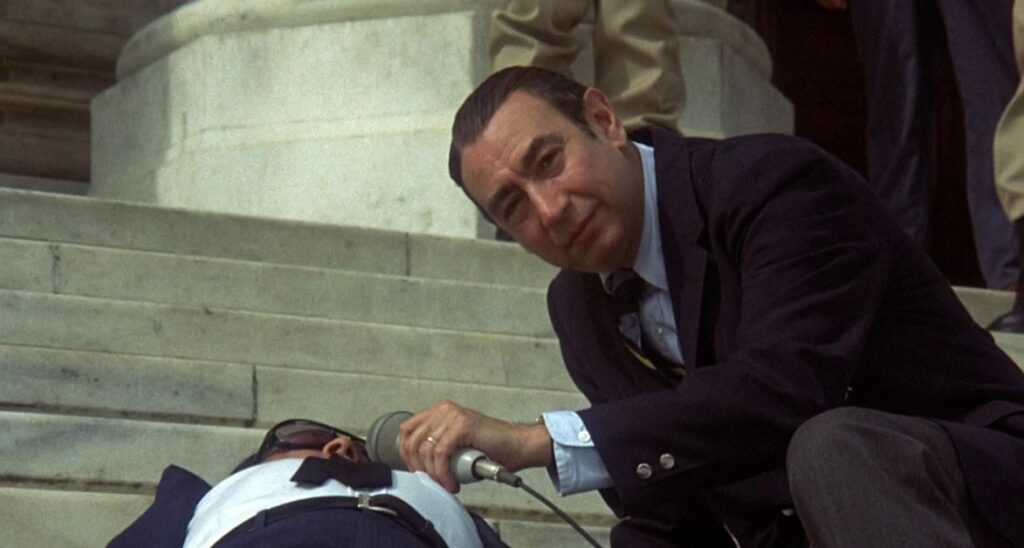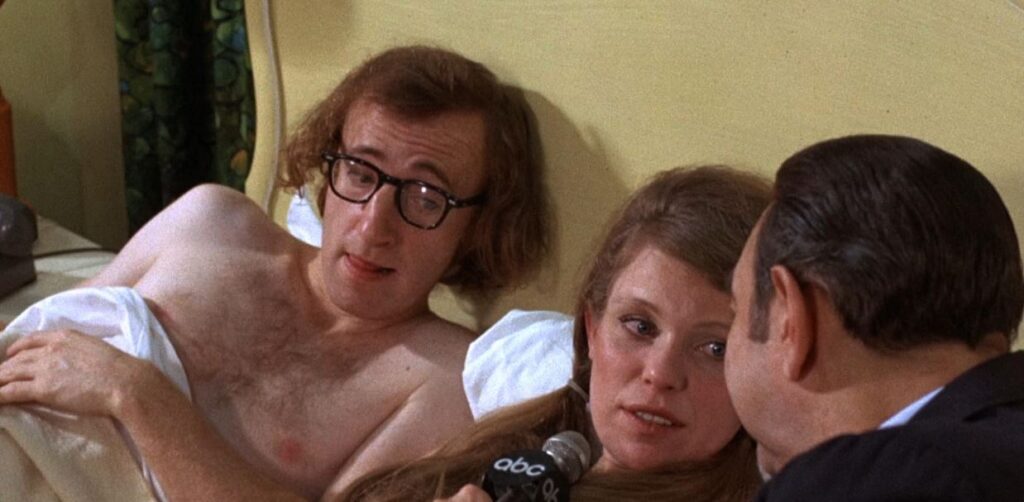
When Howard Cosell died on April 23, 1995, at the age of 77, the famed cadence of the world’s most indelible broadcaster was forever silenced. More than that, though, America lost its purpose, its very raison d’etre. For with Cosell, hated nearly unanimously by a misunderstanding and hopelessly submental populace, the soundtrack to our lives has never been more delightfully pompous. At minimum, elevated and intellectual. Forced to share booth and screen with assorted dumb jocks (think of Don Meredith, who, legend has it, never did learn to read), Cosell rose above his station to unify the seemingly opposing camps of sport and high culture with heretofore unheard-of grace and delicacy.
Football, no longer the bonehead’s delight, achieved a spiritual grandeur. He, as much as anyone, made it our national sport. Back when boxing had cultural import, he was there to connect the dots, granting an authority to the likes of Muhammad Ali they may not have achieved on their own. Still, it was more than his vocabulary and comical arrogance; Cosell made everything under his purview inherently interesting. If you doubt it, go back and watch a few episodes of Battle of the Network Stars again. Or for the first time. I defy you to name anything in our current media landscape as gloriously watchable. Gabe Kaplan in bikini briefs may as well have been Munich, 1972. That’s all Howard.

But I digress. We’re here for Bananas. Far and away the best of the early Woody Allen odes to Groucho Marx, it is a masterpiece from the first frame to the last because, like beautifully tailored bookends, Howard is there. He’s our initial guide, and our parting shot. There for an assassination, while giving just as much heft to a couple’s first roll in the marital hay. Playing himself (who else could he play??), he’s everywhere all at once, thinking nothing of reducing a bloody coup to the sport of kings while surveying the scene with a necessary detachment only he could provide. Just the facts, as always, with a sly grin thrown in for good measure.
Think of his opening remarks in San Marcos, immediately preceding the death of the country’s fair leader, worth quoting in full:
“This is tremendous, Don, just tremendous. The atmosphere heavy, uncertain, overtones of ugliness. A reminder, in a way, of how it was in March of 1964 at Miami Beach when Clay met Liston for the first time and nobody was certain how it would turn out. The crowd is tense; they’ve been here since ten this morning. And… and I think I see… the door beginning to open. El Presidente may be coming out. The door opens. It’s he… it’s El Presidente waving at the crowd. A shot rings out! He turns… he runs back toward the building, trying to get in. This crowd is going wild. He’s caught in a crossfire of bullets. And down! It’s over! It’s all over for El Presidente!”

No other human being could lend such a scene the simultaneous jolt of absurdity and gravitas it requires. Even after the president is down, gasping for breath, Howard is there, microphone in hand, ready to do his duty for journalism. “Well, good luck to you, sir,” he offers, even though the president’s next stop is a gravel pit just outside city limits.
And yet, despite the weight of being witness to murder and revolution, Howard proved for all time he’s just as deft with a lighter touch. If love is in the air, he’ll be there too, press credentials at the ready, offering the sort of play-by-play unseen until Roone Arledge changed the world. Lovemaking reduced to pugilistic passion. Yes, it’s Woody’s idea, but I’m sure Cosell had a hand in the origin story. Sex and violence quite reasonably transformed into mere spectator sports, bankrolling a nation careening towards doom. Inevitable, so you may as well laugh.

We should all be so lucky as to have the likes of Cosell in our bedroom. Hell, he could make missionary fresh and exciting once again. More than that, though, here was a man far too easily dismissed proving he could laugh at himself with gusto. He knew all the jokes, the criticisms, and the wisecracks. His rage would have been more than justified. But he preferred turning it all on its head. Supplanting the taunts with sheer nerve. And talent. Unapologetic, in-your-face talent. The world may no longer have room for the likes of Howard William Cosell (or Woody Allen, for that matter), but that’s our loss to accept. With enough blame to go around.
Leave a Reply